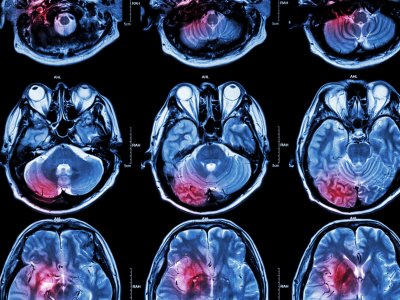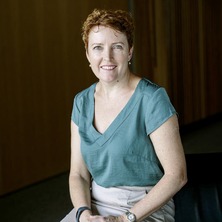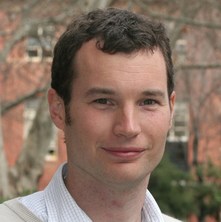 A stroke happens when blood supply to the brain is interrupted.
A stroke happens when blood supply to the brain is interrupted.
Blood is carried to the brain by blood vessels called arteries. Blood contains oxygen and important nutrients for your brain cells. Blood may be interrupted or stop moving through an artery, because the artery is blocked (ischaemic stroke) or bursts (haemorrhagic stroke). When brain cells do not get enough oxygen or nutrients, they die. The area of brain damage is called a cerebral infarct.
In conjunction with National Stroke Week, we asked researchers from UQ's Faculty of Health and Behavioural Sciences how they hope their research will impact people who have had a stroke.
 Professor Sandy Brauer
Professor Sandy Brauer
School of Health & Rehabilitation Sciences
"People with stroke are known to have low activity levels, which places them at further risk of another stroke and other cardiovascular events. We are hoping to create a training program that physiotherapists can implement with people who have had a stroke, starting when they are in hospital, which can increase their physical activity and improve their health and wellbeing. We are also doing companion studies seeing if aerobic exercise can also increase blood markers (proteins) that are important in neuroplasticity in stroke survivors – ie can we use aerobic exercise to drive learning in people with stoke."
 Dr Martin Sale
Dr Martin Sale
School of Health & Rehabilitation Sciences
"We all know people that have had a stroke, and unfortunately many of these people don’t fully recover all of their function. When the region of the brain that controls movement is affected, people often have difficulty undertaking many activities essential to daily living such as feeding themselves and getting dressed. My research aims to maximise the chances of full recovery after stroke by enhancing neuroplasticity in the region of the brain affected by the stroke."
 Associate Professor Gail Robinson
Associate Professor Gail Robinson
School of Psychology
"We hope to identify whether stroke patients experience prospective memory, executive function and social cognition difficulties in the first few weeks following stroke, and whether these predict their everyday function after six months. This contributes to our understanding of brain-behaviour relationships following stroke. In the future this research will inform us about prognosis and discharge planning in the acute stage."



